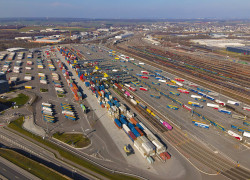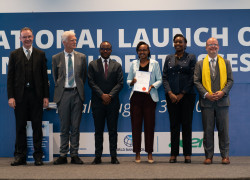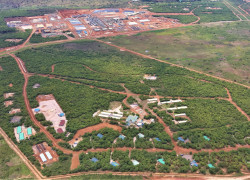PwC Luxembourg : CEO Pulse Poll
Global CEO confidence, reputation and short-term cost concerns tipping action on climate change
80% of CEOs told us what motivates them personally on climate change is their desire to protect the interests of future generations. But look beneath this headline and you see a smaller, emerging group of leading CEOs making the connection with growth, costs, risk and shareholder value. Far more need to be motivated by business as well as moral issues, and make the connection between climate change and financial performance, particularly in the context of an ambitious deal on climate change this year.
Laurent Rouach, Partner and Sustainability Leader, PwC Luxembourg
- 54% are changing strategic investments in light of green growth opportunities
- Binding international climate deal is not the driver for climate change action by business
- Energy prices and regulation headline short term concerns
With less than 100 days to a global deal on climate change (COP21, the 21st Session of the Conference of the Parties to the United Nations Framework Convention on Climate Change, will take place in Paris from November 30th to December 11th 2015), three quarters of CEOs surveyed by PwC say they are developing new products and services to respond to climate change – and a third say it’s helping them grow their business.
Following research by PwC earlier in the year that showed CEOs seeing more opportunities for growth today than there were three years ago, PwC polled international business leaders on their views on growth prospects in the context of climate change.
The results suggest an emerging group of leading CEOs, confident about economic growth prospects more widely, forming a business case for action on climate change based on cost efficiency, stronger risk management and new market opportunities.
- Three out of five CEOs surveyed say they are acting on climate change to create a reputational advantage;
- Over half are motivated by improving shareholder value (53%) and building trust in their organisation (52%).
- 58% say their companies are partnering with suppliers and business partners to address climate change risks and opportunities, 55% with consumers.
- 89% have made energy efficiency improvements, 74% have set recycling targets.
- 61% have changed how they monitor and manage risk.
- 49% having board level discussions on climate change once a year or more.
Laurent Rouach, Partner and Sustainability Leader, PwC Luxembourg, said:
“80% of CEOs told us what motivates them personally on climate change is their desire to protect the interests of future generations. But look beneath this headline and you see a smaller, emerging group of leading CEOs making the connection with growth, costs, risk and shareholder value. Far more need to be motivated by business as well as moral issues, and make the connection between climate change and financial performance, particularly in the context of an ambitious deal on climate change this year.
“Today’s short term issues, such as energy cost and regulatory concerns, will become tomorrow’s longer-term and strategic threats to competitiveness and growth. The implications of a changing climate are a tick list of critical business issues ranging from commodity pricing and energy, to logistics and sourcing, to investment, talent and customer retention.”
With less than 100 days to the UN Climate Summit in Paris, an international agreement on climate change looks set to increase both the risks and opportunities of a changing climate for global companies. Among the main concerns identified in the survey:
- CEOs’ top climate concerns are impacts on energy prices (61%) and the potential increase in government regulation (56%)
- Longer-term climate impacts are a lesser concern with impacts on supply chains and infrastructure at 51% and 35% respectively
The most important drivers for climate action for CEOs identified are greater public awareness and engagement (80%) and a clear, consistent and long-term national government policy framework (77%). In contrast, only 46% identified a binding agreement on climate change as the main driver for action in their sector.
Laurent Rouach added:
“It is often hard to make the link between the global climate negotiations and day-to-day business issues – national regulation is often more relevant and immediate. CEOs are more focused on the near term and direct issues like regulation and consumer attitudes. Less than half the CEOs see the Paris agreement as a driver for action in their sector, despite its role as a catalyst for national regulation, or make connection with shareholder value.”
To read the complete results of the survey, click here http://download.pwc.com/gx/ceo-pulse/climatechange/index.htm
Communiqués liés
RSA launches technology and management liability insurance s...
RSA Luxembourg, part of Intact Insurance Specialty Solutions, today announces th...
Lancement d'une nouvelle connexion intermodale entre Bettemb...
CFL multimodal a le plaisir d'annoncer le lancement de sa nouvelle connexion i...
Experts from LUNEX award first micro-credentials in Rwanda o...
The Rwanda Ministry of Education (MINEDUC) formally inaugurated Syllabi, a publi...
ERG Notes that ENRC Secures Landmark Victory as Court of App...
Eurasian Resources Group (ERG), a leading diversified natural resources group he...
LetzToken et La Vie est Belle annoncent leur partenariat ouv...
«?LetzToken?», plateforme de tokenisation pionnière basée à Luxembourg, et ...
ERG announces a Pre-Export Finance Facility Agreement based ...
Eurasian Resources Group (“ERG”, “The Group”), a leading diversified nat...
Il n'y a aucun résultat pour votre recherche







